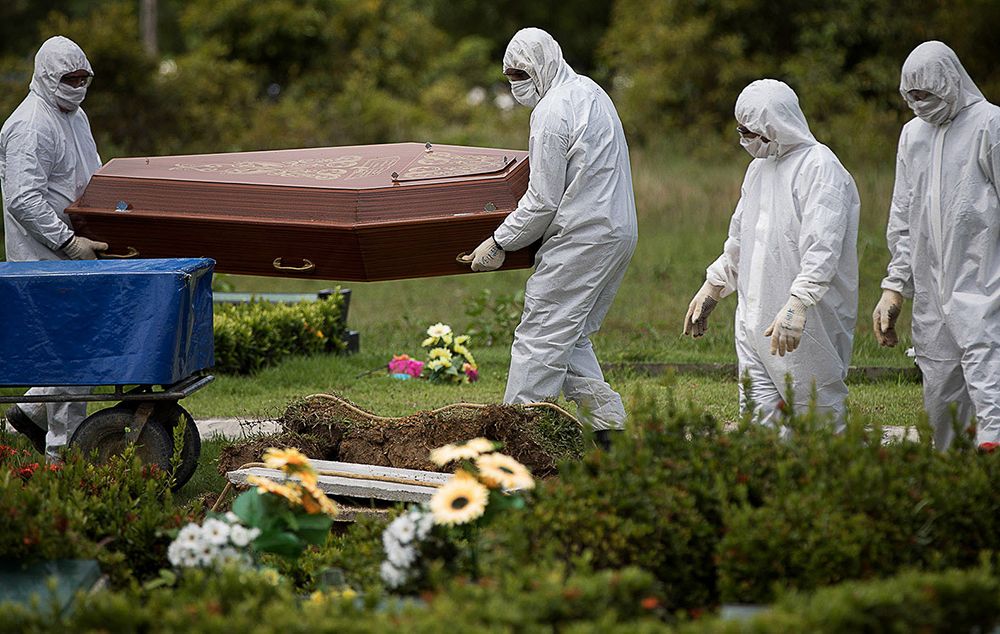RIO DE JANEIRO, BRAZIL – On Sunday, Brazil reached the mark of 132,000 deaths caused by Covid-19, and the disease became the top cause of death with more victims ever recorded in the country in a single year. The first death from the disease in Brazil occurred on March 12th, according to a review by the Ministry of Health.
UOL analyzed data from the Ministry of Health’s SIM (Mortality Information System), which has recorded these data since 1979. The survey uses the ICD (International Classification of Diseases and Problems Related to Health) as its basis and restricts it to specific causes, rather than to groups of diseases.
Among the classifications of natural or external causes of mortality in the SIM, ischemic heart diseases (which include heart attacks) have historically led the cause of death list and reached their peak in 2019, with 116,000 deaths in 12 months, according to SIM preliminary data.

In the case of respiratory diseases, pneumonia has always been the deadliest, and the single-year death record also occurred in 2019, when it caused 83,000 fatalities.
Among cancers, lung, bronchus, and trachea is the one causing the highest number of deaths in Brazil, but it has never reached 30,000 in a single year.
Again in terms of comparison, the deaths caused by Covid-19 in only six months now correspond to more than double the historical record of homicides, which occurred in 2017, when 62,000 people were violently killed. Traffic accidents had their highest figure in the decade in 2012, with 46,000 victims.
Lethality of 0.6 percent is extremely high, says researcher
Vera Magalhães, professor and researcher in tropical diseases at UFPE (Federal University of Pernambuco), states that a significant impact of Covid-19 on the number of deaths in the country was already expected.
“The virus really has an enormous impact in the whole world, not only in Brazil. And although lethality seems low -of 0.6 percent, according to WHO [World Health Organization] estimates in the world- it is an extremely high rate because this is a disease that is tending to stabilize at a peak of cases and even deaths,” she explains, noting that the lethality of influenza-like H1N1 and others- is much lower and ranges from 0.01 to 0.08 percent.
According to the researcher, it must be taken into account that in addition to the high rates of contamination and lethality, Covid-19 is a disease of limited treatment and prevention. “The problem is that we still do not have a specific medication or vaccine. Although several vaccines under trial are promising, there is still a long way to go before marketing and vaccination of the population to interrupt the circulation of the novel coronavirus,” she says.
For the vice-president of the ABRASCO (Brazilian Association of Collective Health), pubic health official Bernadete Perez, although deaths are expected by the disease, the Brazilian figure was much higher because the country did not act adequately in the fight against Covid-19. “These 133,000 deaths are a very high figure. We must remember that this is a preventable disease,” she says.
Another point that Perez mentions as a determining factor in this high number is that Brazil has not managed to contain the spread of the disease still in its initial transmission stage. “This would have been possible with a broad network of primary health care, with epidemiological surveillance capabilities that could actively search, map and track. Thus, we could break the transmission chain of the virus; we witnessed this in several countries. Despite the social and regional differences, it would have been possible to prevent a large part of this tragedy.”
Source: UOL

